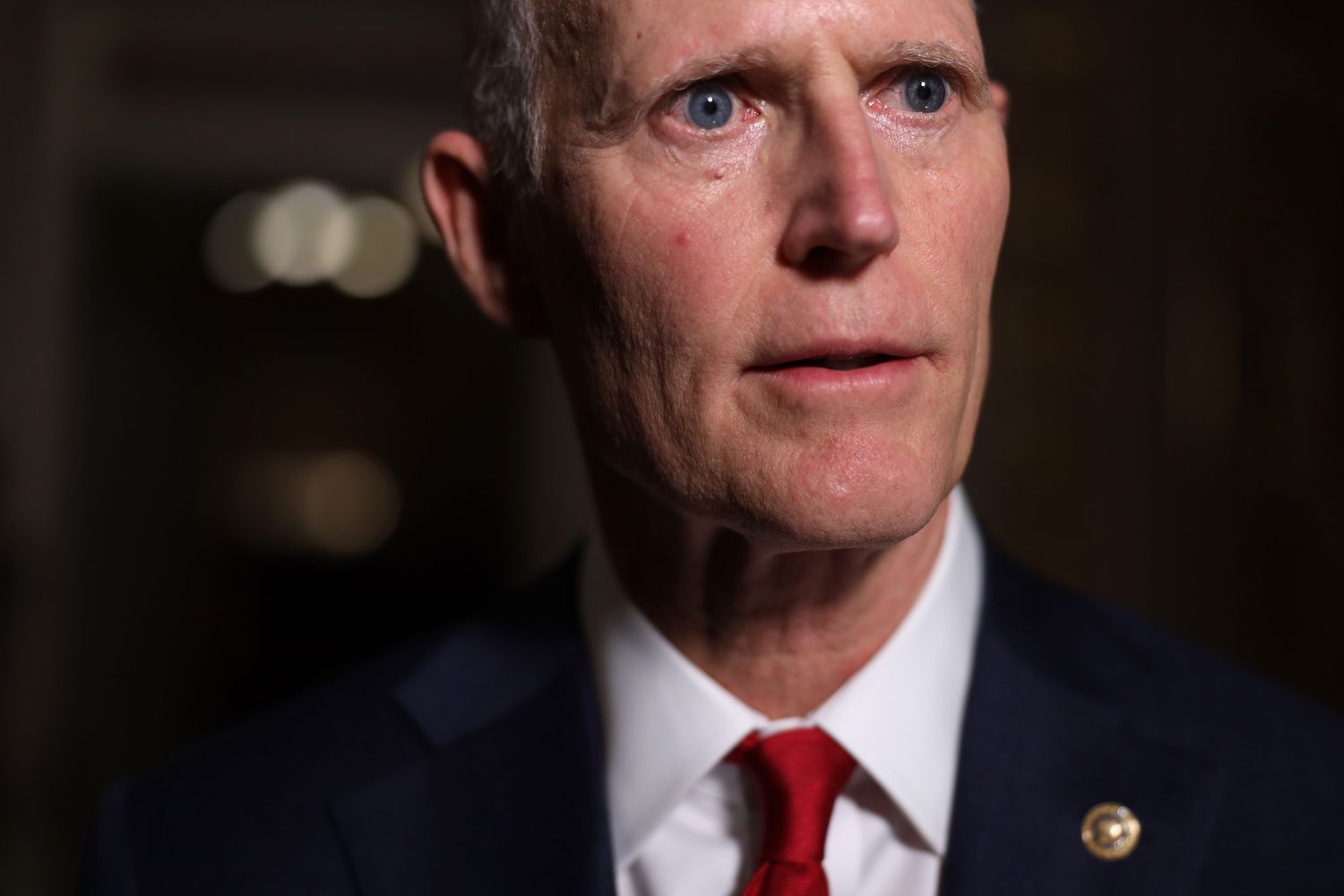
“Why do I want to go pay for all of [New York Gov. Andrew Cuomo’s] liberal issues? That’s what this would do,” Scott (R-Fla.) said Wednesday, adding that he spoke to Trump over the weekend about the issue. “His tweets say he’s not supporting bailouts.”
“Maybe Rick knows something I don’t know but I don’t think so,” countered Kennedy (R-La.). “I don’t know what the president’s going to do. We had a very positive meeting yesterday.”
The divide over the flexibility proposal highlights the latest tension within the GOP caucus over how to approach helping state and local governments whose budgets are stretched thin during the outbreak.
In addition to the talk about flexibility, Republicans are also divided over whether to increase money for state and local governments. Senate Majority Leader Mitch McConnell last month said states should file for bankruptcy but has since said that federal money for states would be tied to liability protections in future relief packages.
The CARES Act, signed into law in March, allocated $150 billion to state governments. Under Kennedy’s proposal, that money could go toward non-coronavirus related items. But the money could not go toward pension funds. Sens. Dan Sullivan (R-Alaska) and Mike Rounds (R-S.D.) have also introduced their own proposals to increase states’ flexibility and replace revenue shortfalls.
Kennedy attempted to pass his bill last week by unanimous consent but Scott blocked it. And it’s not likely McConnell would bring it up for a roll call vote.
Sen. Roy Blunt (R-Mo.), a member of leadership, also expressed some skepticism about the flexibility proposal, arguing that “if you’re innovative at all there’s plenty of Covid-related things to spend your money on.” He added that support from him would require that there would have “to be substantially more equity in the way the money was distributed.”
Senate Majority Whip John Thune (R-S.D.) acknowledged the divide within the conference and predicted that if anything happens on state flexibility, it will likely be attached to another piece of legislation.
“There are strong views on both sides of the issue but I guess the question is, if we are gonna allow that flexibility what’s the best way to do that,” Thune said. But he added that he “could see more likely something happening on flexibility. I don’t think there’s any appetite for more aid at the moment.”
Senate Democrats, meanwhile, are indicating that they are open to giving states more choices over how to use the funds.
“[Kennedy’s] expressly said it does not cover pension debt which is fine with us,” said Illinois Sen. Dick Durbin, the No. 2 Democrat in the Senate, who acknowledged his state’s pension shortfalls. “More flexibility for the state and local governments is a good idea.”
Durbin and his Democratic colleagues are also calling for more money for states and don’t view giving them more flexibility as an alternative to that push. House Democrats, meanwhile, introduced a rescue package this week that allocates $875 billion for state and local governments. Democrats crafted that package without Republican or White House input and the Senate is unlikely to bring it up.
“I just don’t think when unemployment is getting to Depression-era levels, the American public is going to accept inaction from Congress,” said Sen. Chris Murphy (D-Conn.).
A recent poll conducted by Hart Research on behalf of the American Federation of State, County and Municipal Employees and the American Federation of Teachers found that 69 percent of voters support including money for state and local services in the next coronavirus package. In addition, 74 percent of voters said funding for public services should take higher priority over the deficit.
Senate Republicans, however, have taken more of a wait-and-see approach when it comes to spending in any future coronavirus packages, arguing that they need to see how the existing money in the CARES Act is allocated before committing to more. Several, including Scott, have voiced concerns about “bailing out” blue states — a sentiment that governors like Cuomo are pushing back on vehemently.
And some Senate Republicans are also pointing to the Alabama state Legislature’s plans to use some of its federal dollars to build a new statehouse — an idea Republican Sen. Richard Shelby of Alabama described as “stupid” — to back up their case.
But senators pushing for more money are betting that pressure will mount. Sens. Bill Cassidy (R-La.) and Robert Menendez (D-N.J.) introduced legislation that would create a $500 billion fund to assist state and local governments.
Cassidy said Wednesday it’s only a matter of time before his colleagues will feel an urgency to act.
“Every week another state reports terrible revenue dollars,” he said. “My state just reported a billion dollar shortfall. That’s the state, not including the cities. One of my cities is laying off 10 percent of their essential workers. The more that comes on board the more folks will realize we need to do something.”
Source: politico.com
See more here: news365.stream






